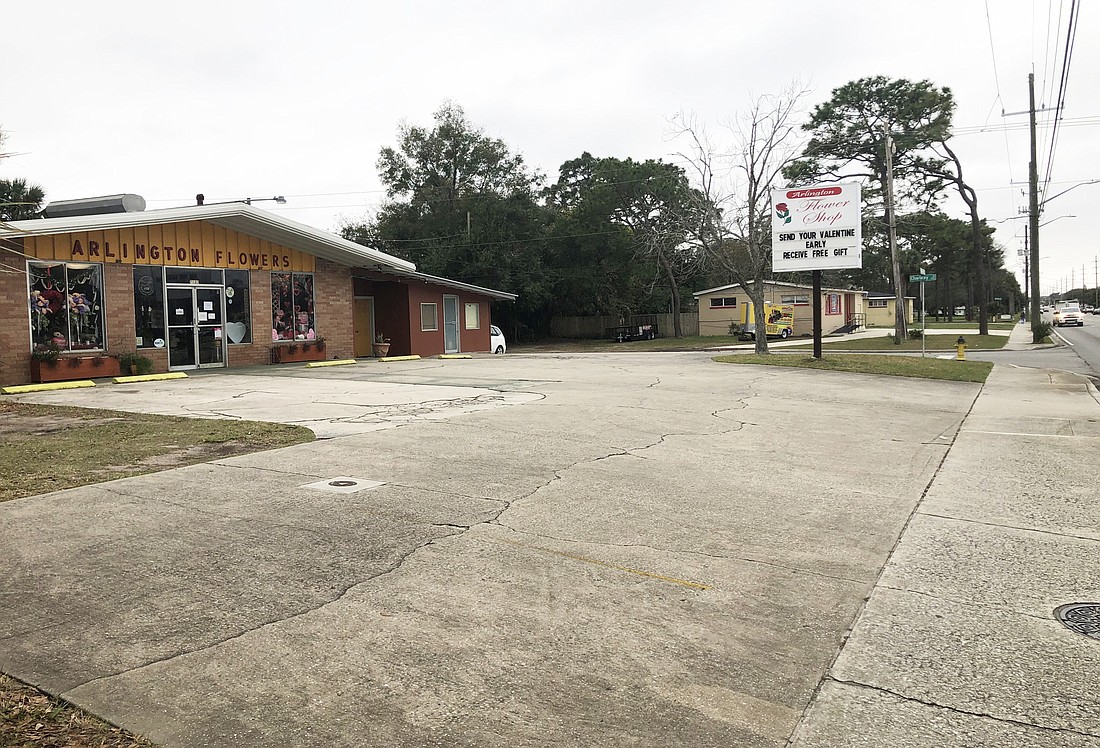
A two-year push by some Arlington commercial property owners to cushion the financial impact of zoning code changes could be settled before March.
The Arlington Community Redevelopment Agency board gave final approval for a compliance grant program in January that will reimburse commercial property owners in the Renew Arlington Zoning Overlay for the cost to bring their businesses into minimum compliance.
City Council approved updated zoning in June to combat blight in Arlington and create uniformity in building codes to attract development.
Arlington is one of the city’s earliest suburbs. It developed in the 1950s after the Mathews Bridge opened over the St. Johns River from Downtown.
Three major business corridors will be affected by the overlay changes: University Boulevard from the Arlington Expressway to Fort Caroline Road; Merrill Road from University Boulevard to Interstate 295; and a section of Arlington Road from University Boulevard to Rogero Road.
District 1 Council member Joyce Morgan, who represents Arlington, wants to make other adjustments to the zoning changes.
On Dec. 11, she introduced Ordinance 2019-0879, a revision to the overlay changes, and a substitute bill Feb. 11.
The legislation addresses what property owners in the overlay have argued is a problem since final details were released in May — compliance improvements on many properties would trigger a 10-set review by the city.
Under the existing building code, if a commercial property undergoes a major renovation greater than or equal to 50% of its assessed value, the buildings on the property would be subject to compliance regulations.
In the Renew Arlington revision, city officials propose keeping compliance updates in the overlay separate from the standard building codes.
The substitute bill creates a Renew Arlington Design Review Team that will vet Arlington overlay compliance improvements separate from the city’s standard permitting review.
The bill says the RADAR team is needed because “the sites within the Renew Arlington Zoning Overlay boundaries are generally smaller in size and present a unique challenge to meet the mandatory compliance element requirements of the Zoning Overlay due to the history of road widening and in some instances a change of use in the area from single family residential to office, retail and service establishments.”
If Council approves the overlay revisions at its Feb. 25 meeting, the compliance grant will take effect.
Overlay commercial property owners will have five years plus 90 days from the day the grant program becomes effective to meet compliance.
Kirk Wendland, the city’s director of economic development, explained that city officials have specific ways it calculates reimbursement for each of the three compliance categories — fencing, signage and landscaping.
For example, the city will reimburse $22 per linear foot for wood fencing — the material which meets the overlay’s minimum requirement.
If a property owner opts for vinyl fencing, the grant will still reimburse $22 per square foot, but not beyond what it costs to reach minimum compliance.
Signage dimensions and the city’s reimbursement payments are based on parcel size.
Economic development officials are asking Council for $30,435 to pay a part-time landscape architect to provide business owners with draft designs for compliance upgrades to landscaping free of charge.
According to the substitute bill, overlay properties owners who want to take advantage of the grant will be required to get approval from the city-hired landscape architect before the RADAR team will consider the application.
The designs can then be used to obtain bid pricing for the compliance work.
Ordinance 2020-0060 would provide funding to pay the landscape architect’s wage, as well as another estimated $4,000 to advertise and market the compliance grant program.
In December, the economic development office estimated it would cost $7.33 million to bring the estimated 125 Arlington commercial properties into compliance. That includes the cost to update signage, fencing and landscaping, plus architectural design fees.
The grant would pull the money from the Renew Arlington Community Redevelopment Area Fund over the next six fiscal years.
The city projects 5% revenue growth in the fund through fiscal year 2024-25, which would bring its balance to an estimated $8.96 million.
Wendland said he was able to earmark $1 million in the CRA fund for the compliance grant to start the program.